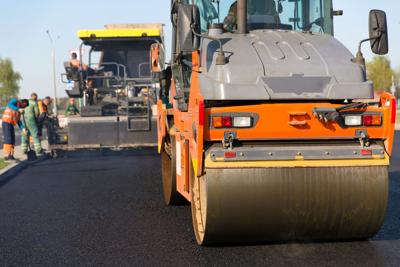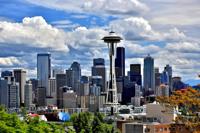(The Center Square) – Beginning next summer, owners of vehicles registered within the city of Spokane Valley will pay an extra $20 fee when they renew their annual license tabs.
In a 4-3 vote Tuesday evening, city council members approved the tab fee to fund a new transportation benefit district that will use the dedicated revenues for street repairs and maintenance. Supporters of the measure say it will reduce transfers from the city’s general fund that subsidizes such work, freeing up those monies for other uses such as public safety or hiring police officers.
The new vehicle tab fee is scheduled to take effect on July 1, 2024. It’s expected to generate an estimated $2.8 million in revenue during the first full year of collection in 2025, said deputy city manager Erik Lamb.
Voting in favor of the tab fee ordinance were Mayor Pam Haley, Deputy Mayor Rod Higgins, and councilmembers Tim Hattenburg and Arne Woodard. Opposing the measure were councilmembers Laura Padden, Brandi Peetz and Ben Wick.
In meetings during the past several weeks, the council has engaged in considerable discussions over options to fund the transportation benefit district, or TBD, which was established in October.
The debates have focused whether a tab fee, ranging from $20 to $50, or a local sales tax increase of .1% to .3% was more appropriate. Under state law, council members could impose the minimum of either, but a public vote would be needed for higher amounts.
There were concerns that a fixed tab fee, even $20 a year, unfairly affected lower-income persons and would only be paid by local residents. Most of the council favored the sales tax option because it could generate more revenue and apply to visitors driving to Spokane Valley for shopping, thereby sharing the fiscal impact with others from outside the city.
But throughout their talks, council members have been divided over the funding level, whether it should be decided by public vote, and whether voters would reject any ballot proposal.
Wick felt a sales tax hike was “more equitable, but said he “remained committed” to seeking a public vote on any funding option, regardless of amount.
Woodard, who said he disliked the tab fee, noted that city officials have held dozens of meetings in recent years about the need for more street funding, and how subsidy transfers were depleting several million dollars annually from the general fund.
“At some point, we’ve got to make a decision,” he said, equating the $20 fee to the cost of three lattes “on an annual basis to take care of roads. And it doesn’t do it all; we’ll still be looking at a sales tax.”
Hattenburg and City Manager John Hohman noted that some of the street funding had been subsidized by the city’s utility telephone tax, but those revenues have dropped from over $3 million to about $900,000 as the use of landlines has diminished in favor of cell phones.
According to the state Department of Licensing, nearly 141,000 vehicles registered within Spokane Valley city limits would be subject to the new fee. The agency collects the money, then returns it to the city minus a 1% administration cost.
Certain vehicles are exempt from the fee, including campers, farm vehicles, mopeds, off-road vehicles and snowmobiles and private-use single-axle trailers.
TBD monies are specifically dedicated to local improvement projects including street paving, crack sealing, pothole repairs, snow plowing, cleaning storm drains, and more. Revenues can accrue over time for larger projects or provide matching dollars for future grant funding.
Spokane Valley manages about 450 centerline miles of roadway, including 320 miles of local access streets and nearly 130 miles of larger arterial and collector roadways. An estimated $16 million is needed annually to maintain “suitable pavement condition,” but the city’s street fund is falling short of that amount by at least $5 million, thereby requiring general fund transfers. The new tab fee revenue will reduce that subsidy.









